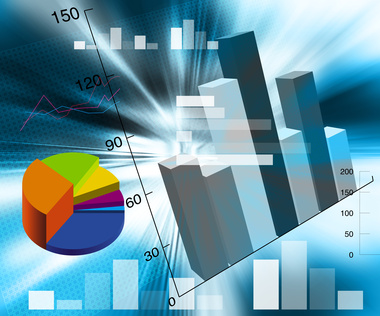Accounts are not only a legal requirement but hey are essential to the effective running of every business.
A business without accounts is like a ship without a compass, especially in the early years, but what type of compass do you get?
The wrong accounting system can be worse than none at all.
So lets take a look at the alternatives.
Which First Accounting System ?
There is no doubt that many of the largest companies started of with their accounts on the ” back of a fag packet” along with their business plans and cash flow forecasts.
Whilst this is not something to be recommended there is a great deal to be said for keeping it simple in the early days.
I started my first business with precious little knowledge of accounting let alone the software that was often considered necessary.
I wasted hour upon hour trying to understand my accounts and what they meant for my business.
Keep it Simple
The humble spreadsheet is probably the simplest of accounting systems and no doubt the one to bring your current financial situation clearly into view.
Unless your business has a lot of itemisation, i.e. you have many parts to purchase, operations to conduct or sales to make, then a simple spreadsheet is probably the best accounts package you could chose.
This can be used for budget and Cash Flow forecasts as well as actual on going performance measurement.
measurement.
It is so simple that the conclusions and implications leap out at you without you going on a course to learn to interpret them.
Also ITS FREE – Click Here.
A very important consideration when funds are tight.
When the Sheet won’t Spread Far Enough
There comes a time when the humble but ever so useful spreadsheet won’t quite cut it.
Your business will have grow somewhat and the complexity will have increased.
Complex stock calculations, costings, and salaries may have covered an ever increasing product range and it’s time to look at a “proper” accounts software.
Although you could use spreadsheets I found myself spending too much time transferring figures from one sheet to another
A few years ago it was a choice of which software do I buy but now there are two very different types of offering in the equation.
Conventional Software versus The Cloud.
Conventional software is what many of us were used to.
You buy it, it arrives on a disc, you load it up and you enter you figures,then, away you go.
There is also the option in some cases, of a support package often at a monthly fee.
This is where it becomes important to have good support and loads of You tube tutorials to ease the learning curve.
With most of us familiar with cloud based operating such as Facebook, Dropbox, Linkedin etc etc the cloud options are now far more attractive than desktop options.
Once your accounts are in the cloud you can work on them anywhere and at any time using a Pc, laptop, tablet or phone.
You can enter expenses by taking an image on your phone and a couple of clicks later it’s part of your expenses.
The jobs done whilst you are still on the car park
To give some idea of the costs I have taken a quick look at the two market leaders and have compared desktop and cloud options.
Desktop Accounts
When I say desktop I include a laptop or other similar device, just so long as it can load and run programs.
Sage 50 is a great offering from the best known of all accountancy software companies.
It’s a great product with first class support from sage themselves or from the many video tutorials available free on You tube and other sources.
When you deal with Sage you can call on first class support unfortunately this is not always the case with other providers.
Sage 50 begins at £20.00 per month + VAT ………….click for more info
Quickbooks Essentials is the entry level small Business product. Like Sage they also have a lower cost self employed version.
Be careful when looking at prices as there are quite a lot of discounts available but these usually only last for a few months so they don’t really count in the long term.
Quickbooks Essentials £ 15.00/per month + VAT………………click for more info
Accounts in the Cloud
 Internet based or Cloud accounts packages are now readily available and worth considering.
Internet based or Cloud accounts packages are now readily available and worth considering.
With a cloud based system you do not actually own a piece of accounting software.
You simply Log on to an Internet site and do all your accounting in the cloud ( Cloud refers to the Internet itself ).
This concept takes a bit of getting used to if you haven’t gone down this route before.
It’s quite a change to entrust all your accounting records to an on line service provider but the security that they provide is far superior to anything that a startup or Small Business could hope to provide.
As a cloud user you will no longer have to worry about your disk crashing or unexpected downtime.
Not only can you access your accounts from any where at any time, so can your accountant.
No more packing up shoe boxes full of bills and receipts for him to sort.
In fact some accountants will give you a discount for using a well organised system.
 Sage Cloud Accounting
Sage Cloud Accounting
As the leader in accounting software and services from the off it’s no surprise that Sage offer a Cloud based solution that is adjustable to any size or type of business.
With accounts packages from £ 20 /month ( with a current three month introductory offer at £ 10.00/month you can get your accounts up and running. Sage also provide additional Invoicing and Payments packages.
The great thing about Sage cloud Accounting is that it can grow as you and your business grow but you only pay for what you are using.
Conclusion
If you want to keep it simple then a spreadsheet will get you started. The only drawback is that you will have to enter historic data if in the future you decide to migrate to an accounting package.
With this in mind I would recommend using either a Cloud or server based product as soon as possible.
Your accountant will love you for it.
No more shoe boxes full of paperwork and till receipts.













 Small Business Boss owned by Pagefree Ltd
Small Business Boss owned by Pagefree Ltd
You must log in to post a comment. Log in now.